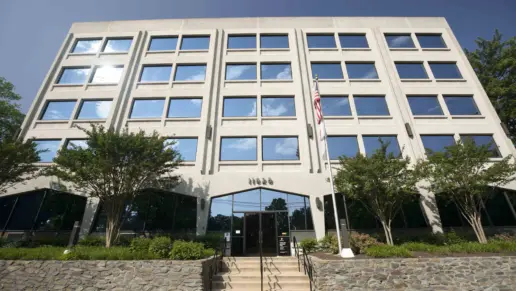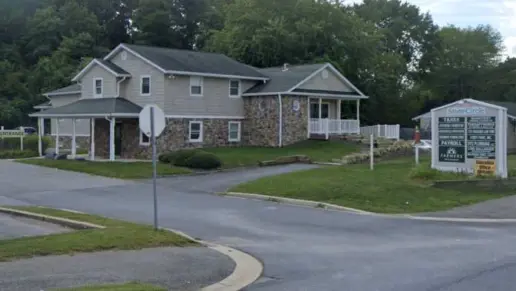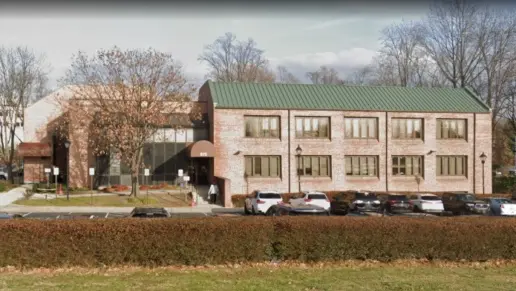This house has saved my life! Such a great structure, each one that lives/works there has a specific chore to do so you can have the correct atmosphere for rehab
About Samaritan House
Samaritan House, located on a secluded wooded property in Annapolis, Maryland, is a private addiction treatment and dual diagnosis care center for adult and young adult men. They offer inpatient and outpatient treatment and a range of support services that include counseling for both clients and families.
Most clients work with a professional addiction counselor who will refer them to Samaritan House from an intensive outpatient program or a jail based substance abuse program. To pay for your treatment, Samaritan House accepts Medicaid, but they also have self pay options and financial aid, including sliding scale payment assistance.
Inpatient programs at Samaritan House allow clients to focus on recovery in a supportive, structured care setting. Since the facility is a state certified halfway house, you must complete a medical detox before starting inpatient treatment. All inpatient treatment takes place in one of the residential recovery houses.
While there, you’ll receive intensive individual and group counseling. All clients attend three weekly group therapy sessions and one individual counseling session. Group therapy meets in the evening, but you can pick times that work for you for your one on one sessions.
Samaritan House uses proven approaches to addiction treatment. Your treatment may include intensive cognitive behavioral therapy, motivational enhancement therapy (MET), and participation in a 12 Step recovery program. Plus, you’ll have access to wellness programs! There’s a fitness center membership, basketball courts for some friendly competition, and community gardening spaces if you’re into getting your hands dirty.
After you’ve spent about six to nine months in residential treatment, you can transition to an outpatient program, which gives you sober living support for around 12 months. The environment in outpatient treatment is a little more laid back, but keep in mind, you’ll need at least 90 days of sobriety before moving into transitional housing.
Samaritan House offers a full menu of support programs, including addiction counseling and relapse prevention. They also offer job counseling and life skills training to help you get back on your feet and experience a smoother transition back to normal life.
Rehab Score
Gallery
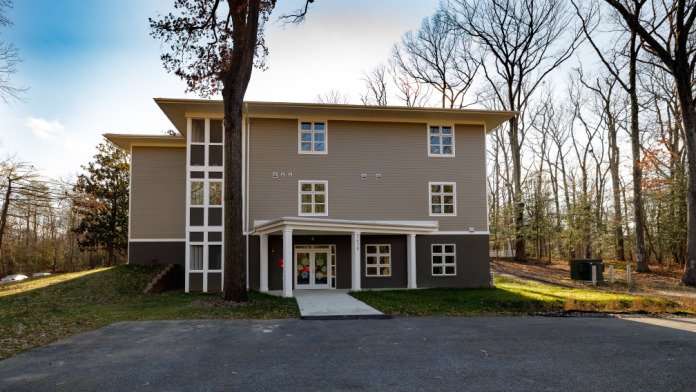
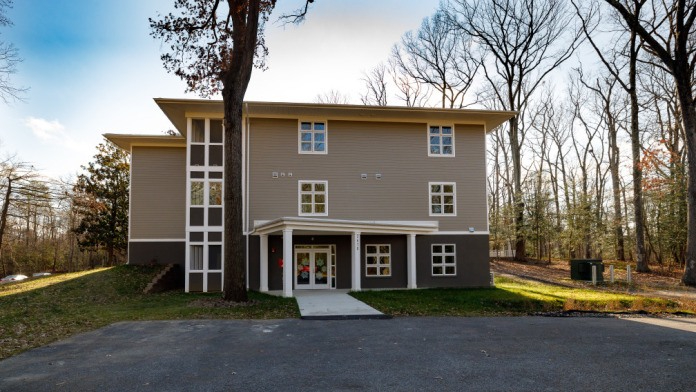
Location
Other Forms of Payment
Medicaid is a state based program that helps lower-income individuals and families pay for healthcare. Medicaid covers addiction treatment so those enrolled can use their coverage to pay for rehab. When a program accepts Medicaid the client often pays very little or nothing out of their own pocket.
Self-pay involves paying for treatment out of your own pocket. You can use savings or credit, get a personal loan, or receive help from family and friends to fund your treatment. If you don't have insurance or your insurance plan doesn't cover a specific program, self-pay can help ensure you still get the care you need.
Financial aid can take many forms. Centers may have grants or scholarships available to clients who meet eligibility requirements. Programs that receive SAMHSA grants may have financial aid available for those who need treatment as well. Grants and scholarships can help you pai for treatment without having to repay.
Sliding scale payments are based on a client's income and family size. The goal is to make treatment affordable to everyone. By taking these factors into account, addiction recovery care providers help ensure that your treatment does not become a financial burden to you or your family, eliminating one barrier to care.
Addiction Treatments
Levels of Care
Treatments
The goal of treatment for alcoholism is abstinence. Those with poor social support, poor motivation, or psychiatric disorders tend to relapse within a few years of treatment. For these people, success is measured by longer periods of abstinence, reduced use of alcohol, better health, and improved social functioning. Recovery and Maintenance are usually based on 12 step programs and AA meetings.
Once a person has become addicted to a substance, drug rehab in Maryland is often necessary to overcome that addiction. These programs provide the tools individuals need to manage the physical, mental, and emotional issues involved and begin a successful recovery journey.
Many of those suffering from addiction also suffer from mental or emotional illnesses like schizophrenia, bipolar disorder, depression, or anxiety disorders. Rehab and other substance abuse facilities treating those with a dual diagnosis or co-occurring disorder administer psychiatric treatment to address the person's mental health issue in addition to drug and alcohol rehabilitation.
Opioid rehabs specialize in supporting those recovering from opioid addiction. They treat those suffering from addiction to illegal opioids like heroin, as well as prescription drugs like oxycodone. These centers typically combine both physical as well as mental and emotional support to help stop addiction. Physical support often includes medical detox and subsequent medical support (including medication), and mental support includes in-depth therapy to address the underlying causes of addiction.
Substance rehabs focus on helping individuals recover from substance abuse, including alcohol and drug addiction (both illegal and prescription drugs). They often include the opportunity to engage in both individual as well as group therapy.
Programs



Clinical Services
Research clearly demonstrates that recovery is far more successful and sustainable when loved ones like family members participate in rehab and substance abuse treatment. Genetic factors may be at play when it comes to drug and alcohol addiction, as well as mental health issues. Family dynamics often play a critical role in addiction triggers, and if properly educated, family members can be a strong source of support when it comes to rehabilitation.
Group therapy is any therapeutic work that happens in a group (not one-on-one). There are a number of different group therapy modalities, including support groups, experiential therapy, psycho-education, and more. Group therapy involves treatment as well as processing interaction between group members.
Trauma therapy addresses traumatic incidents from a client's past that are likely affecting their present-day experience. Trauma is often one of the primary triggers and potential causes of addiction, and can stem from child sexual abuse, domestic violence, having a parent with a mental illness, losing one or both parents at a young age, teenage or adult sexual assault, or any number of other factors. The purpose of trauma therapy is to allow a patient to process trauma and move through and past it, with the help of trained and compassionate mental health professionals.
Contact Information
2610 Green Briar Lane
Annapolis, MD 21401
